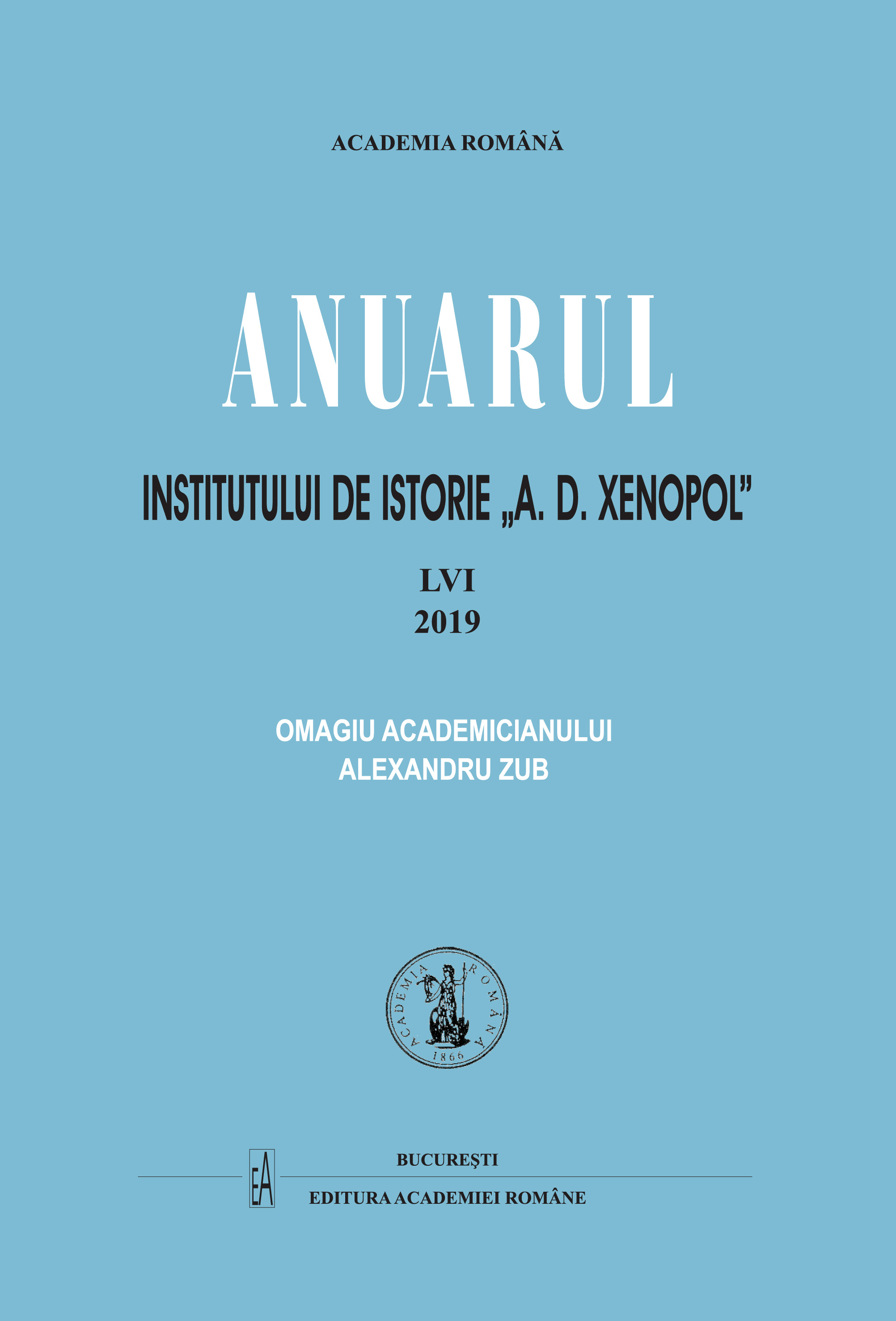ICONOMIA BISERICEASCĂ, UNUL DINTRE TEMEIURILE JUSTIȚIEI PENALE ÎN MOLDOVA
ECCLESIASTICAL OIKONOMIA – ONE OF THE GROUNDS OF CRIMINAL JUSTICE IN MOLDAVIA
Author(s): Cătălina ChelcuSubject(s): History, Law, Constitution, Jurisprudence, History of Law, Criminal Law, Modern Age, 16th Century, 17th Century, 18th Century
Published by: Editura Academiei Române
Keywords: ecclesiastical oikonomia; the legal practice; political behaviours;
Summary/Abstract: The research topic is actually an episode of what we may call the “survival” of Byzantium in the political culture of the Romanian Principalities. The field of Law was one of the controversial aspects of this issue. My incursion into the characteristics of the imperial Byzantine ideology is meant to explain certain political behaviours of the reign in Moldavia, mainly in the legal practice in late 18th century and the first decades of the 19th century. The Byzantine political tradition present in the Romanian Principalities until the 18th century entailed a reprisal of the governing principles of the Empire. The princes of the country continued to get on the Moldavian throne “with God’s mercy”, a title preserved by those who occupied the princely see in the 18th century and the first decades of the 19th century. The princely institution was affected severely by the Turkish-Phanariote regime of the 18th century but, at the level of the domestic princely policy, the institution per se did not undergo significant changes. In terms of legal practice, historical sources attest – as shown throughout my paper – that the princes preserved their right of jus gladii, namely of sentencing to death the persons guilty of several criminal acts. The princes would use this right, as always, as they saw fit (my italics). As we get to the 19th century, death sentences are ever rarer. Most penalties were limited to mine labour, preceded by mutilations and – quite often – by beatings. How can one explain the change in paradigm? On one hand, by the fact that – for criminal power – the loss of an asset or right as a punishment method became far more effective in terms of attaining punitive purpose. On the other hand, we must consider the consolidation of the princely institution, given that it imitated the ideological imperial Byzantine model, based on the image of a good and merciful prince. I believe that these explanations prove valid because legal practice attests fully the reprisal of the Byzantine ideological foundation of oikonomia in governing the country, with the two essential principles: philanthropy and leniency.
Journal: Anuarul Institutului de Istorie »A.D. Xenopol« - Iaşi
- Issue Year: LVI/2019
- Issue No: 56
- Page Range: 43-61
- Page Count: 19
- Language: Romanian

